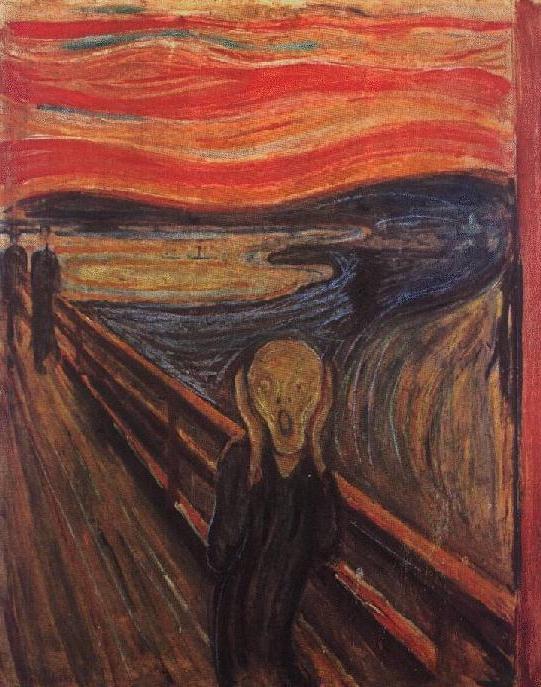
December 12

1719 The Aurora Borealis is first recorded.
1731 Birth: Dr. Erasmus Darwin, physiologist and poet, and grandfather of Charles Darwin.


1804 Spain declares war on Britain.
1805 Birth: William Lloyd Garrison, poet, journalist, editor, abolitionist.
1806 Birth: Stand Watie, Cherokee Indian Chief.
1821 Birth: Gustave Flaubert, French novelist, author.
1850 The novel, Wide, Wide World by Elizabeth Wetherell (Susan Warner), is published. The book is called a bestseller by many folks; the first bestseller in America. There will be 14 editions printed during the first two years of publication. (Bradley)

1882 The Bijou Theatre in Boston, Massachusetts, becomes the first theatre to be lighted by electricity.


1899 Boer War: General Methuen had fought many battles in his efforts to relieve Kimberley, which ends this day with his defeat at Magersfontein. The defeat ends early attempts at relief and no further progress is attempted until Lord Roberts arrived in South Africa with more troops. (Bradley)
1900 Charles M. Schwab forms the United States Steel Corporation; bringing together John Pierpont Morgan and Andrew Carnegie to create what will sometimes be one of the richest and most powerful companies in the world.
1911 King George V of Britain holds a coronation durbar in Delhi, where the Indian capital is to be moved from Calcutta.
1913 The painting Mona Lisa is recovered in Florence, in a Florence hotel bedroom, after having been stolen from the Louvre two years earlier.

1924 Birth: Edward 'Ed' Koch, politician, New York City Mayor, judge.
1928 The House of Lords in Britian approves a bill to make driving tests compulsory.


1936 Resistance: Jehovah's Witnesses throughout Germany secretly distribute 200,000 copies of the Lucerne Resolution, a protest of Nazi atrocities, in one hour. (Smith)
1936 Chinese leader Chiang Kai-shek declares war on Japan.
1937 Japanese planes bomb and sink the US gunboat Panay in the Yangtze River north of Nanking, China. Japan later claims it was all a mistake and agrees to pay reparations.
1937 Communists receive 98% of the vote in the first elections to the Supreme Soviet of the USSR.
1939 WW2: Two years forced labor is made mandatory by the Germans for all male, Polish Jews between the ages of 14 and 60. Labor camps are soon set up throughout the General Government and in the Warthegau (Wartheland). (Atlas)
1941 WW2: All branches of American banks in France are ordered closed by the Nazis, except Morgan et Cie and Chase of New York.
1941 WW2: Romania's Antonescu, pressured by Germany and Italy, declares war on the U.S.
1941 WW2: Finland refuses to declare war on the U.S.

1942 WW2: The Ukrainian Insurgent Army (UPA) is formed in Polesie.
1942 Holocaust: The Germans deport 757 Dutch Jews to Auschwitz. (Atlas)
1943 WW2: The U.S. 36th Infantry Division attacks Monte Lungo.
1955 The United States closes its consulate in Hanoi following the end of the Indochina war and the partition of Vietnam.

1955 The largest philanthropic act in the world to this time is announced by the Ford Foundation which gives $500,000,000 to private hospitals, colleges and medical schools.

1967 The Nam: The United States ends the airlift of 6,500 men in Vietnam.
1969 Greece withdraws from the Council of Europe shortly before it was to have been expelled because of its military regime.
1975 Sara Jane Moore declares she had willfully tried to kill President Ford as she is sentenced to life in prison.
1980 Oil tycoon Armand Hammer purchases a notebook of writings by Leonardo da Vinci for $5.28 million at auction in London; the highest price ever paid for a manuscript. It is 36 pages long and dates back to 1508.
1988 Three paintings by Vincent van Gogh - Dried Sunflowers, Weaver's Interior, and a sketched version of his renowned Potato Eaters - are stolen from the Kroller-Muller National Museum in Otterlo, The Netherlands. The museum houses one of the world's largest collections of van Gogh's work. No estimated value of the stolen paintings is announced. (Bradley)
1989 Five Central American presidents, including Nicaragua's Daniel Ortega, call for an end to the rebel offensive against El Salvador's US-backed government.
1991 The Russian parliament ratifies a commonwealth treaty linking the three strongest Soviet republics in the nation's most profound change since the 1917 revolution.
1991 North and South Korea conclude an historic agreement to reunify peacefully after 46 years of division and animosity.
1993 Eduardo Frei wins Chile's presidential elections, the first since military rule ended in 1990.
1994 Brazil's Supreme Court acquits former President Fernando Collor de Mello of corruption charges that had forced his resignation in 1992.
1997 Ilich Ramirez Sanchez, the international terrorist known as 'Carlos the Jackal', goes on trial in Paris on charges of killing two French investigators and a Lebanese national.
1998 President Clinton begins a trip to the Middle East that includes a visit to the new Gaza International Airport in Palestinian territory.

2001 U.S. government officials decide to delay the release of an incriminating bin Laden videotape to ensure accuracy in the translation "before anything is released to the world."
2001 All four crew members are rescued from the Indian Ocean after a U.S. Air Force B-1 bomber malfunctions and crashes.
2001 U.S. Homeland Security Director Tom Ridge and Canadian Foreign Minister John Manley sign a 30-point "smart border" action plan in Ottawa.

2001

2002

2003

2004

2004

2004

2004

2004

2004

2004

Visit:




 Visit:
Visit:

Click Here to email the History: One Day At a Time webmaster.